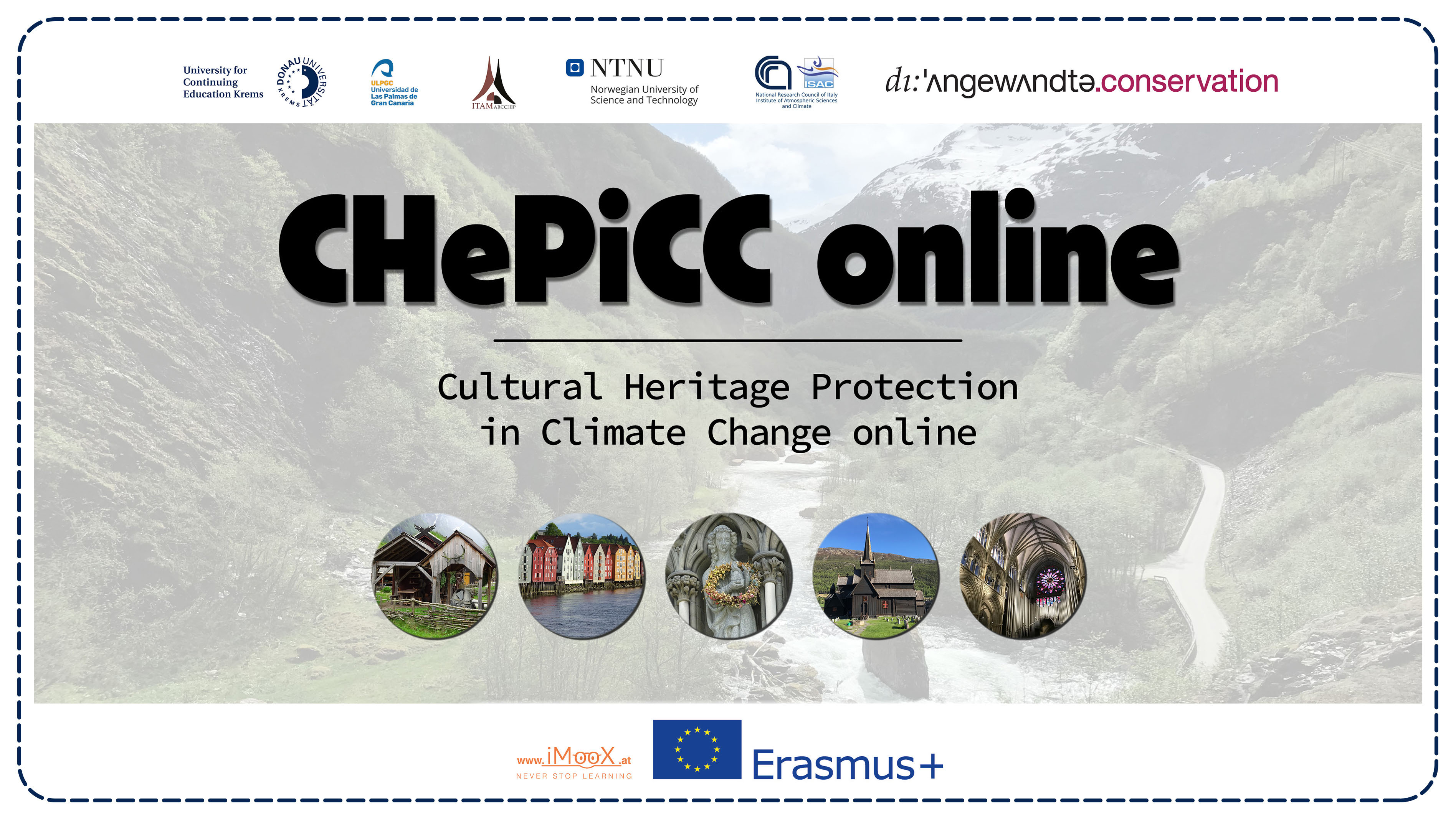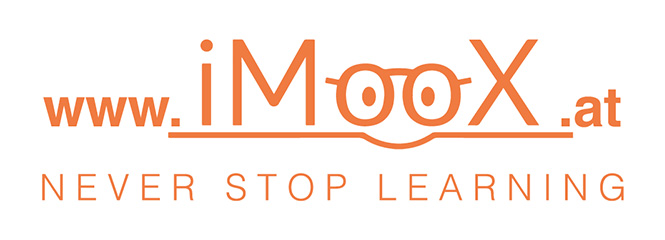Massive Open Online Course (MOOC)
The main aim of the CHePiCC online project is to respond to the fundamental academic need to reconnect cultural heritage and its protection with society and to foster understanding of the relevance, shared values and identity of cultural heritage.
Led by the Center for Cultural Property Protection, an online course has been developed to reintegrate cultural heritage into higher education teaching and learning, to empower future generations to protect cultural property and thus identity for the future, and to encourage behavioural change in relation to cultural heritage protection in the context of climate change.
The course provides skills and knowledge to enable teachers and learners, especially in higher education, to understand cultural heritage protection as an important resource for preserving our common past, and to create opportunities to align their personal (professional) futures with managing the risks that climate change and global warming pose to cultural property.

The course language is English.
Course start at any time.
The online course is freely accessible via the iMooX platform and can be completed free of charge, independent of time and place, without access or admission restrictions. Its integrative, modular and transdisciplinary structure allows it to be integrated into existing university curricula and requires no prior knowledge.
CHePiCC online consists of 4 units divided into several thematic lessons. Each lesson covers the respective topic in depth. Numerous international experts from various fields of cultural heritage protection present their lectures in short video units.
With more than 20 hours of video content, the course covers the four thematic priorities and fields of specialisation:
- Cultural Heritage Protection
Introduction to various aspects of cultural heritage and its protection: basic information about cultural heritage, threats to cultural heritage, decay and neglect, risk assessment and emergency planning, architecture and built heritage, key concepts, causes of decay, risk management and innovative approaches to cultural heritage
- Climate Change
Protection of cultural heritage and the effects of climate change: simulations and projections of weather and climate extremes, models for understanding the climate system, environmental monitoring as preventive conservation including climate and pollutant parameters, WebGIS tool for risk mapping of cultural heritage, climate change as a threat to cultural heritage from the perspective of conservators, threats to architectural cultural heritage, case studies from Norway and the Canary Islands, effects of climate change on cultural heritage
- Cultural Landscapes
Cultural landscapes as an important habitat of cultural heritage: boundaries between cultural and natural landscapes, natural compensation processes of local climatic conditions, ecosystem services, terrace landscapes, natural and cultural landscapes in the Mediterranean, the Danube region, Norway and the Czech Republic
- Sustainable Preparedness Measures
Interrelation between climate change, cultural heritage and landscapes, with a focus on protection against natural disasters: Sendai Framework for Disaster Reduction and Recommendations for the Protection of Cultural Heritage, international NGOs in the field of cultural heritage protection, Italy's National Strategy for the Adaptation of Cultural Heritage Protection to Climate Change, microclimate as a factor for the protection of archives and libraries in historic buildings, preparation of emergency plans and evacuation scenarios, protection of coastal landscapes
iMooX | TU GRAZ - Graz University of Technology
With iMooX, Graz University of Technology offers a platform with freely accessible and openly licensed online courses (Massive Open Online Course - MOOC) on various topics. These MOOCs are available to all interested parties after registration on the platform and can be attended at any time and from any place where there is an internet connection and can be completed at an individual pace.
